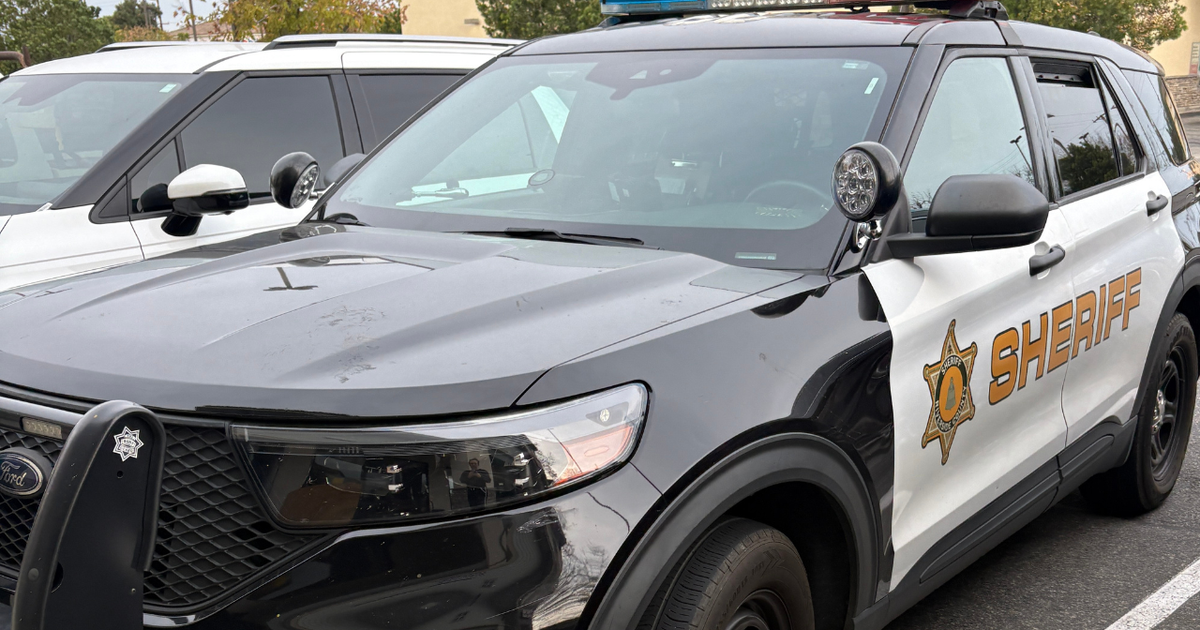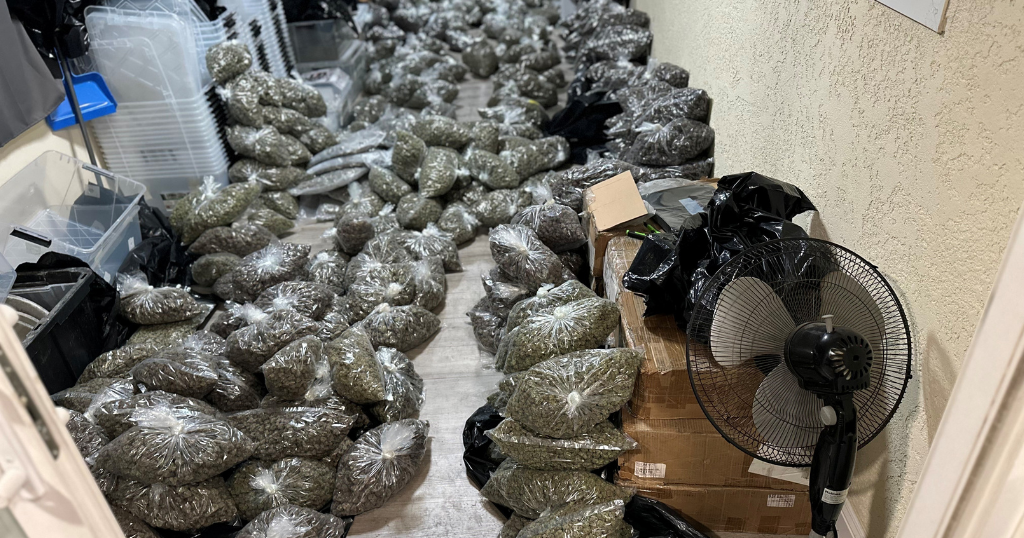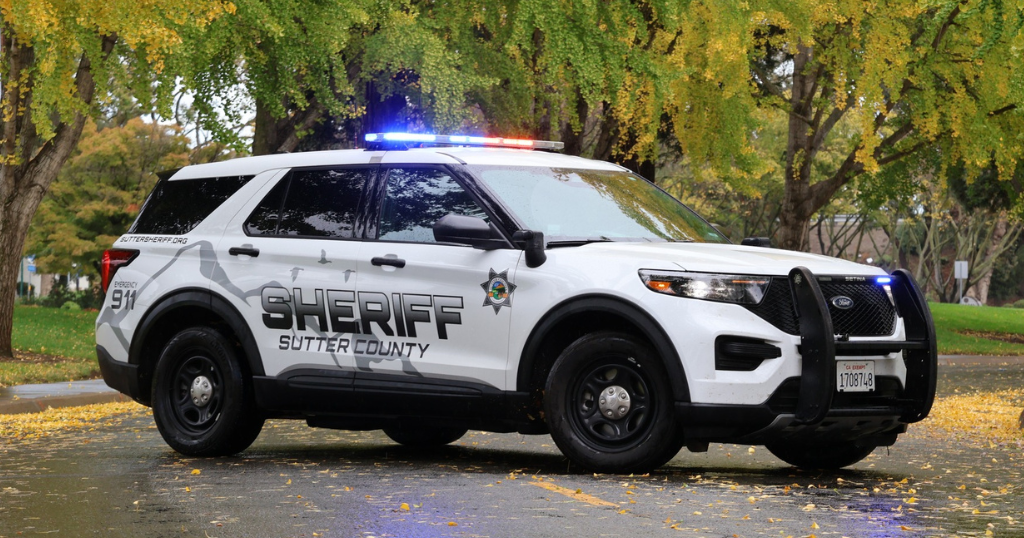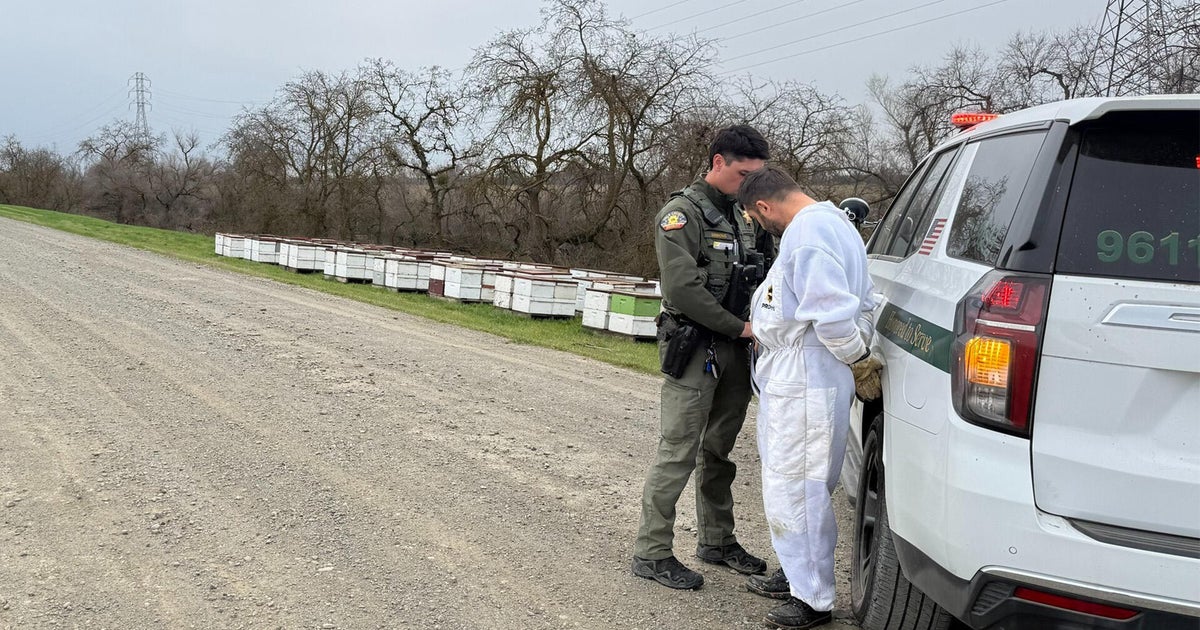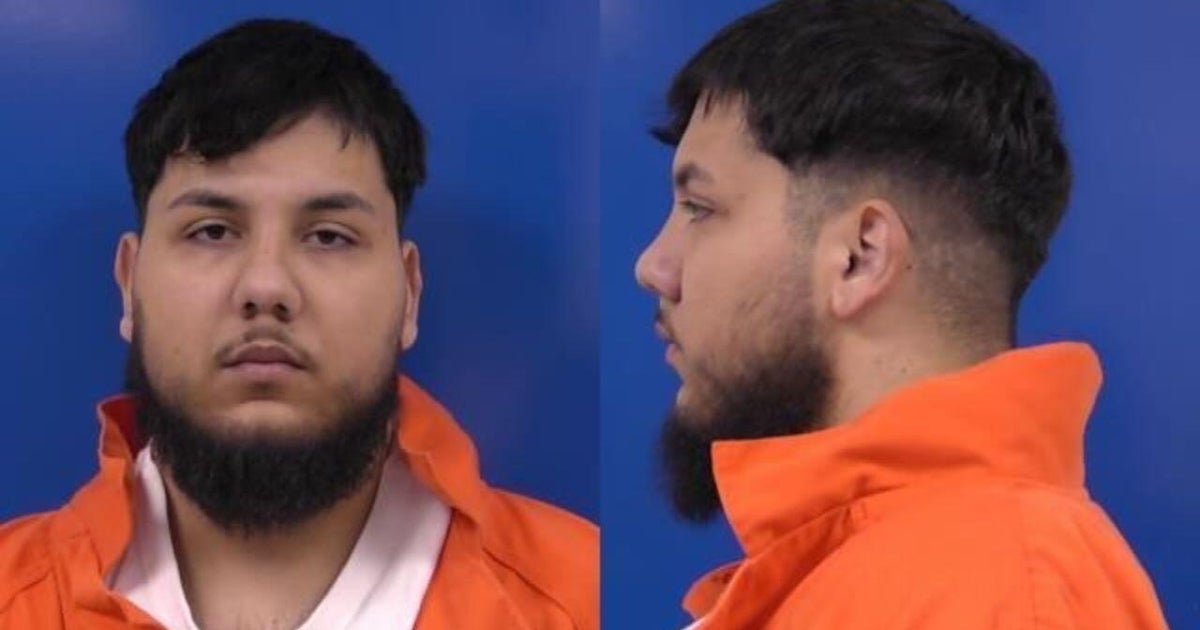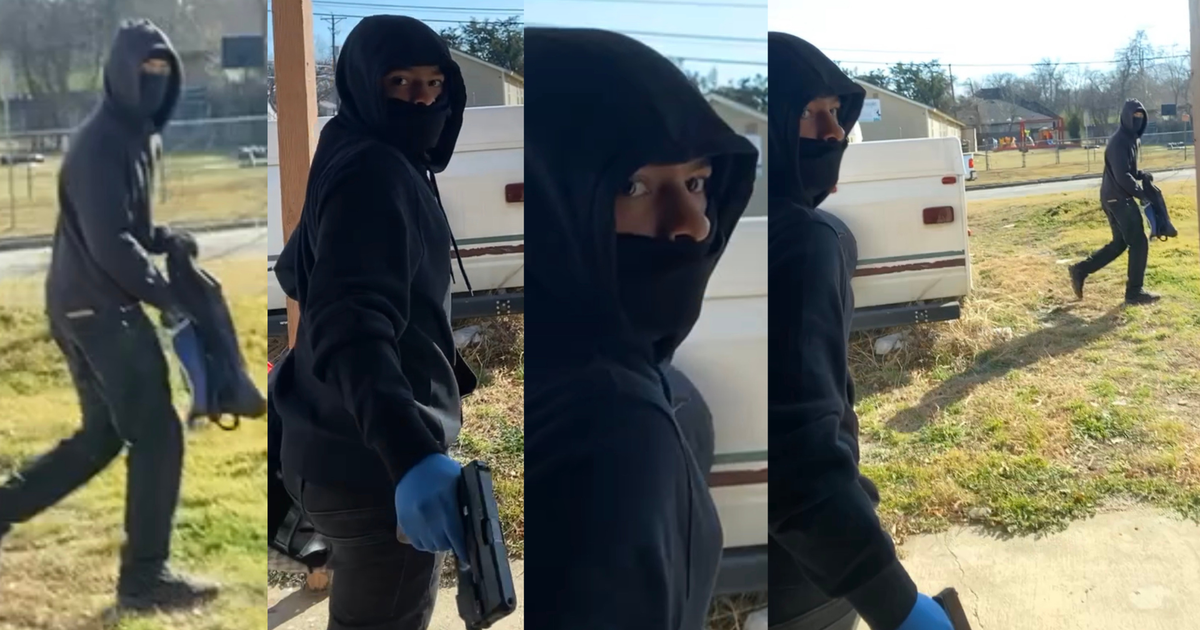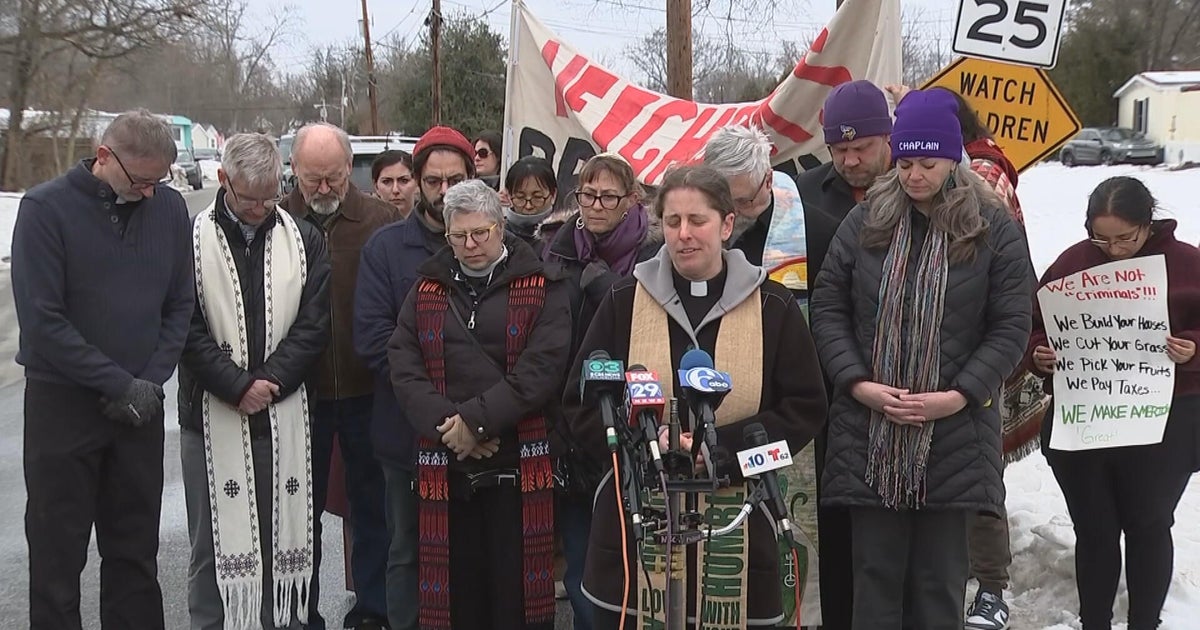Race Matters: A Look Inside Broward Pot Arrests
Follow CBSMIAMI.COM: Facebook | Twitter
MIAMI (CBSMiami) -- On Tuesday, Broward County Commissioners will consider an ordinance allowing police and sheriff's deputies the option of issuing a ticket to individuals caught with a small amount of marijuana rather than formally arresting them.
The measure is sponsored by Commissioner Martin Kiar, who said he was concerned the impact a misdemeanor marijuana arrest can have on an individual, especially those in low-income and minority communities. The move follows a similar ordinance which was enacted in Miami-Dade County earlier this year.
In advance of the Broward commission meeting, CBS4 News, as part of its ongoing series, "Race Matters: Policing by the Numbers," analyzed nearly 7,000 misdemeanor marijuana arrests, made by every police agency in Broward County, going back to January 2010.
CBS4 News looked at only those cases where the sole charge was possessing a small amount of marijuana, often nothing more than a joint.
We found the number of cases has steadily declined every year, with 1,935 cases in 2010 to just 842 in 2014. And this year law enforcement is on pace to make fewer than 700 arrests.
Yet while the numbers are going down, one fact remains, the overwhelming majority of those arrested were black. Since 2010, 69 percent of the people arrested in Broward County were black.
And when the arrests are broken down by individual police agencies, the numbers become even more revealing.
Seventy-six percent of the people arrested by the Broward Sheriff's Office in the unincorporated areas were black.
In Pompano Beach, where blacks make up less than 29 percent of the population, 73 percent of the people BSO arrested were black.
In Deerfield Beach, which has an even smaller black population, 69 percent of the people BSO arrested were black.
In Hollywood, a town where blacks are just 17 percent of the population, more than half, 52 percent, of the people arrested by the police department were black.
And in Miramar, where blacks comprise 45 percent of the population, they make up 76 percent of the people arrested.
The one city however that stood out above all the rest was Fort Lauderdale, where 80 percent of the people arrested for misdemeanor marijuana possession were black despite the black population in the city being 31 percent.
"When you look at these numbers if they don't make you sick then you aren't paying attention," said Howard Finkelstein, the Broward County Public Defender. "You know what these stats show you? There is no war on drugs. There is a war on poor black people. That's exactly what this shows."
The racial disparities are particularly troubling because studies conducted by the U.S. Department of Health have shown blacks and whites use marijuana at the rate. If anything, the surveys have shown, young white adults between the ages of 18 and 25 actually use marijuana at a higher rate than their black counterparts. Yet it is young blacks that make up many of the arrests.
"This is a very important story," Finkelstein said. "This isn't about marijuana this is about institutional racism, this is about equal justice. If you are poor and you are a minority you do not get equal justice in Broward County."
And those arrests are brought on by an aggressive police presence in black neighborhoods.
Marsha Ellison, president of the Fort Lauderdale-Broward chapter of the NAACP, said she routinely receives complaints of what she terms "over policing" from residents in the black neighborhoods of Fort Lauderdale who believe they have been racially profiled and targeted by police.
CBS4 News showed its findings to Marsha Ellison, president of the Fort Lauderdale Broward branch of the NAACP.
"I wish I could tell you that I was surprised," Ellison said stoically. "It is what it is, numbers don't lie."
Fort Lauderdale Police Chief Frank Adderley said he wasn't concerned that 80 percent of the people his officers arrested for possessing small amounts of marijuana were black.
"I think the police department has an obligation to respond to the residents that have a concern," he said.
His officers make more arrests in black neighborhoods, he explained, because that is where the crime is at its worst and folks in those neighborhoods want an aggressive police presence.
"They are coming to us and they are saying. `We want a safe community, we want to have a nice environment,'" Adderley said. "We're not going to turn our backs on the black community. I think we have an obligation here to serve the people we've taken an oath to serve."
Countered Ellison: "That sounds real good, however that is not the reality."
Ellison said she has experienced first-hand over aggressive policing, and she is not the only one in her family to face it.
"Absolutely, myself, my husband, my children have had bad experiences," she said.
Ellison recalled an incident when a van full of plainclothes cops jumped out on her as she pulled into the parking lot of the NAACP offices.
"And I look back the guy has his hand on his gun and the other one is you know, `Get out of the car,'" she said. "I'm driving into this parking lot where it says NAACP but my being in this neighborhood was suspicious to him."
It is a complaint heard often in black neighborhoods across South Florida.
"Law enforcement sees us as being lesser than," she noted. "Once you've had that experience then it stays with you forever."
Finkelstein, the public defender, agrees. He said when police act like an occupying army in minority neighborhoods it sabotages the relationship between the police and the community.
"So it's not just the marijuana arrest, it is, `Law enforcement is out to get me, I am less than,'" he said. "It breeds an attitude, it breeds an anger, it breeds a fear."
The way in which police conduct themselves while working in minority communities is a growing concern across the country. The tumult recently seen in places like Ferguson, Staten Island, and Baltimore can have their roots in a long list of social factors - poverty, unemployment, a lack of clean affordable housing, a breakdown of families - but they almost always become ignited through encounters with the police, especially in neighborhoods where they feel the police treat them with a lack of respect.
The fear is that when the police target neighborhoods around Sistrunk, no matter their motivation, they treat the people who live there differently than they would if they were assigned to more affluent neighborhoods like Weston or Plantation.
Adderley, who grew up in Fort Lauderdale and still lives in the heart of the black community, said he knows what it is like to be unfairly stopped by police. He said it happened to him when he was growing up and it even happened to him when he was young officer.
"Every time I have one of these negative encounters that just encouraged me even more and helped me realize I'm in the right profession trying to do the right thing," he said.
Ellison said what worries her is the impact all of these misdemeanor marijuana arrests have on the lives of those arrested. By targeting blacks for arrest you make it harder for them to move ahead in life. A marijuana arrest can keep an individual from joining the military, renting an apartment or receiving government assistance, getting a student loan or even a job.
"That takes away a lot of opportunity and it doesn't matter that you were a kid or you were a young guy, or it's been five years," she said. "The long-term effects are just devastating communities."
CBS4 News also reviewed how the cases were handled in court and we found that Broward had a conviction rate seven times higher than Dade. And 80 percent of the people convicted in Broward for misdemeanor pot possession were black.
"Broward has always been a backwater town with backwater attitudes," said Finkelstein. "If you look at how racially skewed we are, if you look at our sentences, as you rightfully pointed out, this wouldn't happen in Dade because the judges in Dade would get with the prosecutors and say, `We don't need to convict these people.' In Broward they don't care because almost all of these people are poor and minorities. They don't care."
Broward State Attorney Michael Satz scoffed at Finkelstein's claims.
"The ridiculous comment that the State Attorney's Office does not care about poor minorities is utter nonsense and just plain wrong," Satz said in a written statement.
"Police agencies in Broward make the arrests for marijuana possession, not the State Attorney's Office," added. "We continue to support the concept of police issuing civil citations instead of making misdemeanor marijuana-possession arrests."
And Satz said his office tries to work with individuals so they can avoid a conviction.
"Presently, most people arrested in Broward for misdemeanor marijuana possession can resolve the case by entering either Drug Court or Pre-trial Intervention," he said. "If the person chooses not to enter either program, state law requires that we prosecute the case. The State Attorney's Office follows the laws that the Legislature has established. A judge ultimately decides the sentence."
Finkelstein said there is an easy answer to all of this – decriminalize marijuana. Until then, require officers to write tickets for marijuana possession.
"It's marijuana; give a civil citation," the public defender said. "Save the taxpayers millions of dollars, save the judges, save the prosecutors, save the public defenders. Move on and prosecute people that threaten you and I. This is a total waste of money.
